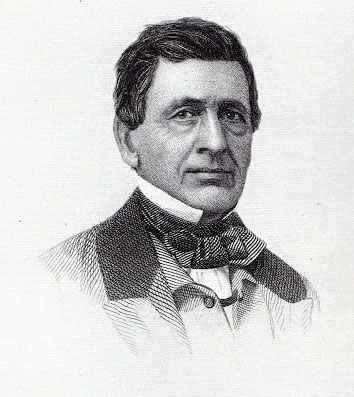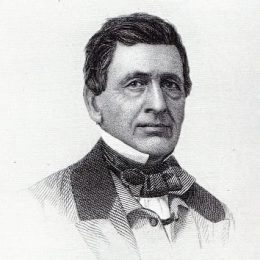Sol Smith
Solomon Franklin Smith (1801-1869), known as "Old Sol," was a key writer in the genre of Old Southwest humor and a well-known personality. Also a co-manager of a theatrical company that toured many southern states and served theaters in St. Louis, New Orleans, and Mobile, Franklin recounted his experiences in Theatrical Management in the South and West for Thirty Years (1868). He wrote some of his best anecdotes about audiences, theatrical performances, and the Creek Nation in Alabama during the 1830s and 1840s.
Smith was born on April 20, 1801, to Levi and Hannah Holland Smith in the rural setting of Norwich, New York. He then went west in the 1820s, studied law, and began his career as a theater manager in Cincinnati, Ohio, in 1823. In 1835, he formed a partnership that lasted until 1853 with another actor, Noah Ludlow, in Mobile. The pair later feuded after Smith retired from the theater, claiming that Ludlow owed him money.
In the mid 1830s, Smith played in Montgomery, Tuscaloosa, Mobile, and other towns accompanied by his wife and children. Smith and Ludlow replaced James H. Caldwell, the leading impresario of New Orleans, in 1843. While residing in St. Louis, he contributed humorous pieces to the Reveille newspaper.
Drawing on his experiences, he published two volumes in the Library of Humorous American Works: Sol Smith's Theatrical Apprenticeship (1845) and Sol Smith's Theatrical Journey Work (1854), which were expanded and issued together as Theatrical Management in the South and West in 1868. Among the many southwestern humorists, Smith developed his own style and unique collection of tales, specializing in anecdotes about actors and steamboats and jokes on himself. Among pieces set in Alabama, in "An Attempted Row in Mobile," Smith tells how he defended himself successfully against a local citizen's charge that he inserted improper language into his part. Smith was also fascinated by Creek Indian culture, which he recounted in "Adventure in the Creek Nation."
Smith also became a well-known character in the tales of others as well as in his own pieces. Because he often played an old man, he was commonly called "Old Sol." This character is the polished purveyor of theatrical art in a backward territory, imperturbable, sometimes sanctimonious, and addicted to big words. Because of his solemn manner, he is often mistaken for and impersonated a preacher, a doctor, and even a steamboat pilot.
Solomon Smith's works offer a unique view of Alabama through his treatments of the Native American and non-Indian populations. A Jacksonian and strong Unionist, Smith opposed slavery and secession. He spent the last years of his life practicing law in St. Louis, where he died on April 20, 1869.
Works by Solomon Franklin Smith
Theatrical Management in the West and South for Thirty Years (1868)
Further Reading
- Cohen, Henning and William B. Dillingham, eds. Humor of the Old Southwest. 3rd ed. Athens: University of Georgia Press, 1994.
- Dormon, James H., Jr. Theater in the Ante Bellum South, 1815-1861. Chapel Hill: University of North Carolina Press, 1967.
- Oelschlager, Fritz, ed. Old Southwest Humor from the St. Louis Reveille, 1844-1850. Columbia: University of Missouri Press, 1990.





